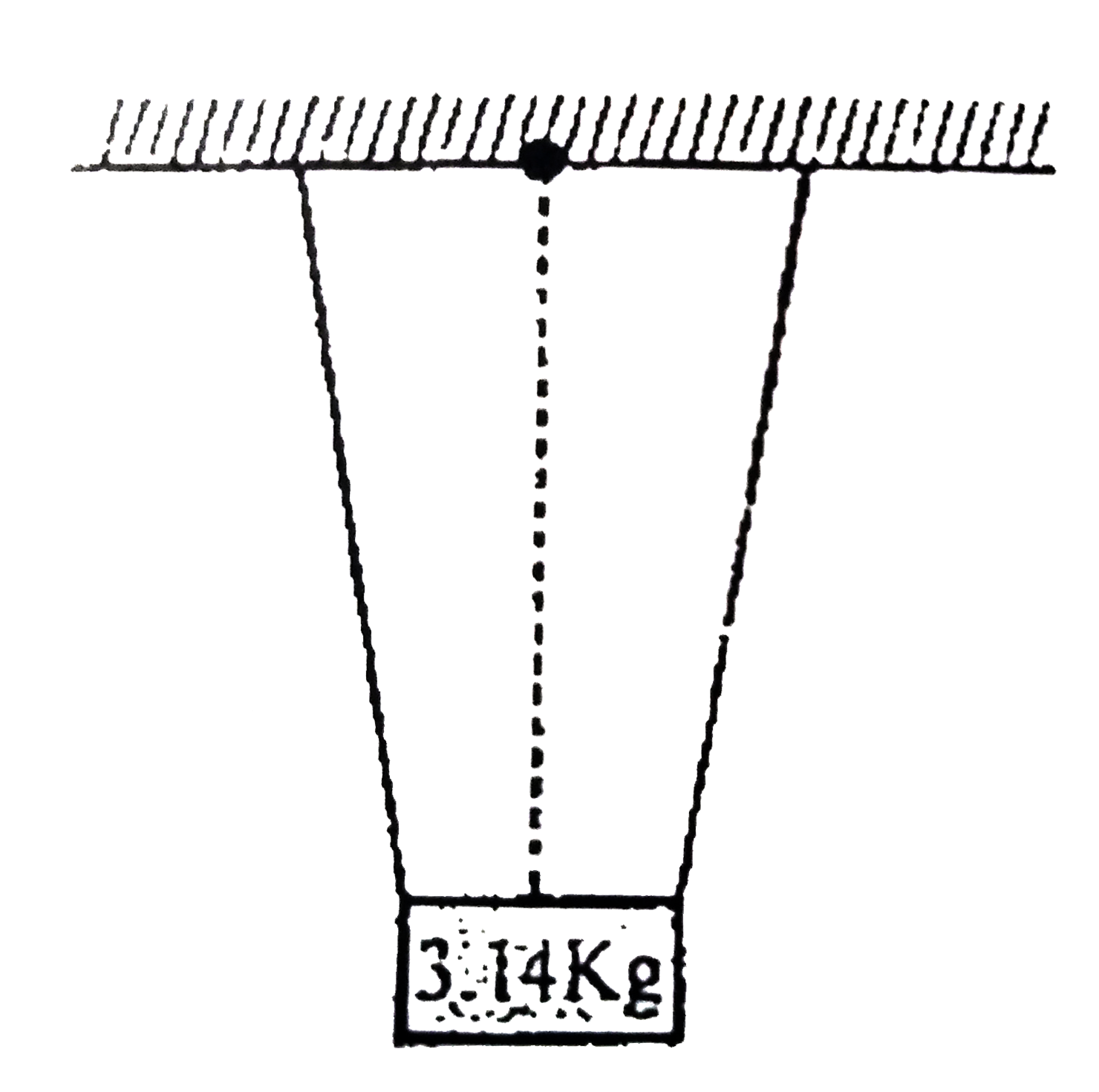A load of 31.4 kg is suspended from a wire of radius 10−3 m and density 9×103kg/m3 Calculate the change is temperature of the wire if 75% of the work done is converted into heat. The Young's modulus and the specific heat capactiy of the meterial of the wire are 9.8×1010N/m2and490J/kg/K respectively.
Step by step video & image solution for A load of 31.4 kg is suspended from a wire of radius 10^(-3) m and density 9xx10^3 kg//m^3 Calculate the change is temperature of the wire if 75% of the work done is converted into heat. The Young's modulus and the specific heat capactiy of the meterial of the wire are 9.8 xx 10^(10) N//m^2 and 490 J//kg//K respectively. by Physics experts to help you in doubts & scoring excellent marks in Class 11 exams.
Updated on:21/07/2023Topper's Solved these Questions
- Mechanical Properties of SolidsBOOK - SL ARORACHAPTER - Mechanical Properties of SolidsEXERCISE - Example
113 Videos
- Mechanical Properties of fluidsBOOK - SL ARORACHAPTER - Mechanical Properties of fluidsEXERCISE - Exercise
459 Videos
- MECHANICSBOOK - SL ARORACHAPTER - MECHANICSEXERCISE - Exercise
341 Videos
Similar Questions
A load of 40 kg is suspended from a wire of radius 10−3m and density 8×10kgm−375% of the work done to increase the length is converted into heat. Calculate the change in temperature (in kelvin) of the wire . Given that Y=7.5×1010Nm−2 and heat capacity of the material of the wire is 490JkgK−1 respectively. (Take π2=9.8andg=9.8m/s2)
View Solution(a) A wire 4m long and 0.3 mm, calculate the potential energy stored in the wire.
Young's modulus for the material of wire is 2.0×1011N/m2.
View Solution
Knowledge Check
If same tensile force is applied on two wires, there will an extension of 1×10−3 m in them. The Young's moduli and radii of these wires are 10×1010N/m2 and 20×1010N/m2 and R1 and R2 respectively then R2 is equal to
A√2R1BR1/√2C4R1DR1/4At what tension a wire of length 75 cm and linear density 8×10−3kg/m , will be resonance with a frequency of 100 Hz.
A45 NB90 NC180 ND300 NThe density of a uniform steel wire of mass 1.6×10−2kg, and length 2.5 m is 8×103kg/m3. When it is loaded by 8kg, it elongates by 1.25 mm. If g=10m/s2, then the Young's modulus of the material of the wire is
A1.5×1011N/m2B2×1011N/m2C1.75×1011N/m2D1.5×1012N/m2
A body of mass 3.14 kg is suspended from one end of a non uniform wire of length 10m, such that the radius of the wire is changing uniformly from 9.8×10−4 m at one end to 5×10−4 m at the other end. Find the change in length of the wire in mm. Young's modulus of the material of the wire is 2×1011N/m2 (mass of wire is negligible)

View SolutionA 10 kg mass is attached to one end of a copper wire, 3m long and 1 mm in diameter. Calculate the lateral compression produced in it. (Possion's ration is 0.25and Young's modulus, of the metereal of the wire is modulus of the material of the wire is 12.5×1010N/m2).
View SolutionCalculate the speed of a transverse wave in a wire of 1.0mm2 cross-section under a tension of 0.98N. Density of the material of wire is 9.8×103kg/m3
View SolutionA wire of density 9000kg/m3 is stretched between two clamps 100cm apart while subjected to an extension od 0.05cm. What is the lowest frequency of transverse vibrations in the wire , assuming Young's modulus of the material to be 9×1010N/m2?
View SolutionThe length of a sonometer wire is 0.75 m and density is 9 × 103 kg/m3. It can bear a stress of 8.1 × 108 N/m2 without exceeding the elastic limit. Then the fundamental frequency that can be produced in the wire is
View Solution
